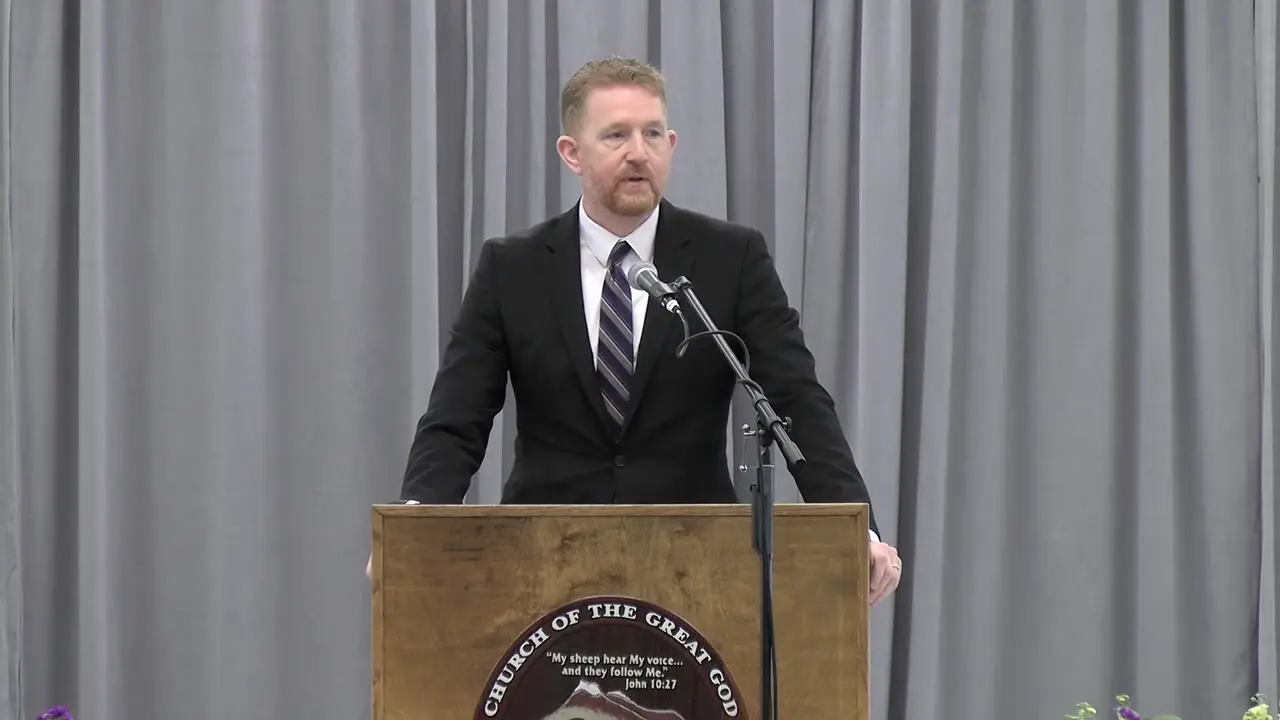Filter by Categories
Hijacking Peace
Sermonette by Joseph B. BaityThe world has no idea where peace comes from because they have long ago rejected the Prince of Peace and His prescription for tranquility.
The Post-Resurrection Last Words of Christ (Part One)
Sermon by Martin G. CollinsWe must be involved in proclaiming His message, feeding the flock, living His example, assuming the responsibilities of our awesome commission.

The Peacemakers
Sermon by Richard T. RitenbaughWhen people are not in a right relationship with God, peace is impossible. Sin (the breaking of the law or covenant) automatically breaks the peace.
Restoration and Forgiveness
Sermon by Martin G. CollinsIt is impossible to grow spiritually in a climate of animosity and jealousy. If we use the power of God's Holy Spirit, peace will accrue as a fruit.
The Cost of Reconciliation
Sermon by Richard T. RitenbaughReconciliation is the product of a sacrifice to pacify the wrath of an offended person. We must imitate Christ in His approach toward hostility from others.
Offerings (Part Four)
Sermon/Bible Study by John W. RitenbaughThe peace offering symbolizes the abundant life that results from complete devotion to God (the burnt offering) and service to others (the meal offering).
God's Rest (Part 2)
Sermon by John W. RitenbaughThe two principal robbers of peace are pride and the drive to have complete control of our lives. Discontent and imagined victimization led Adam and Eve into sin.
Offerings (Part Six)
Sermon/Bible Study by John W. RitenbaughThe sin offering was for sin in general deals with our evil nature, while the trespass offering deals with the fruits of that nature.
Passover and New Creation
Sermon by Charles Whitaker (1944-2021)God has a two-phased project, first a separation process, followed by a unification process, in which all will be gathered and unified into Christ.
Do You Really Want Just Any Eternal Life?
Sermon by Martin G. CollinsWe have a natural desire for eternal life, but living endlessly would not be a blessing if our circumstances were miserable. Eternal life means quality of life.
God's Rest (Part 3)
Sermon by John W. RitenbaughLust begets a guilty conscience, agitation, anxiety, depression, grief, torment. Wrong desire leads to lying, adultery, and murder—eventually leading to death.

The Feasts of Tabernacles and Unleavened Bread
Feast of Tabernacles Sermon by David C. GrabbeIn this message, we learn the divine wisdom and unity within Almighty God's festivals (Leviticus 23) showing how each feast reveals His character, plan, and purpose for humankind. The speaker, using the method of comparison and contrast, exposes a chiastic structure or mirrored design connecting the spring and fall festivals, particularly Unleavened Bread and Tabernacles, both centering on deliverance, dwelling, and dependence on God, forming a complete picture of salvation through Christ. The pattern of one day followed by seven (Passover/Unleavened Bread) and seven days followed by one (Tabernacles/Last Great Day) symbolized the perfection and symmetry of His redemptive plan. Unleavened Bread focuses upon cleansing, sincerity, and feeding on Christ, the Bread of Life. Consequently, when we remove food from our dwellings, we purify every sphere of authority under God, thereby building a stable spiritual house upon Christ. Tabernacles, in contrast, emphasizes impermanence and humility, dwelling in temporary booths, reminding us of our dependence on God's daily provision in the wilderness. Together the permanence of houses and the transience of booths teach us that true security lies not in possessions or comfort but in Almighty God's sustaining presence. The physical symbols of food and dwelling illustrate some divine paradoxes. During Unleavened Bread, food lacks leaven—self-sufficiency and sin—but during Tabernacles, housing lacks permanence—worldly security and control. Through abundance and lack, permanence and transience, God's people learn to dwell in His presence, feed on His Word, and trust His timing.